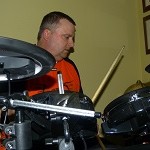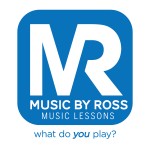Breathing For Singing
When I begin voice lessons with a beginner vocal student, I always begin with proper breathing techniques. Understanding the way you breath is possibly the most important factor when you learn to sing. Breathing for singing isn’t the same breathing for talking. When you talk, you take shallow breaths allowing just enough air to make it through a sentence or so — and most of the time, you don’t even think about it. When singing, you need to move significantly more air to sustain a note. This is why it is very important to fill your lungs with appropriate amounts of air.
Let’s start by talking about the yawn breath.
Think about when you yawn. Remember that big wide open mouthed breath you take in right before you let out a big yawn? Try to emulate that breath a few times. If it actually causes you to yawn, you’ll know you’ve done a good job of it. When you take a breath to sing, it should feel like you’re taking a giant breath similar to taking a “yawning breath”. Your mouth should be nice and open and you should feel a cold stream of air rushing in over the roof of your mouth. Once you’re feeling that, place the palm of your hand at the bottom of your stomach and take another yawn breath. You should feel your stomach expand where your hand is. Not only should you see and feel your lungs fill with air, but also your stomach — where your diaphragm operates.
How do you know when you’ve taken a big enough breath? As you are breathing in, be aware of your body and what you feel. You will eventually feel your ribs begin to expand and you might feel like a balloon, that’s when you know you have enough air.
Now just let it out and sing. No need to push when all that air is already trying to escape anyway. Breathe deep, sing, and enjoy!
Breathing for Singing Checklist:
- Yawn breath
- Feel stomach expand
- Feel ribs and stomach expand
- Let it out and sing!
~ Philip Hill (Music By Ross Instructor – Vocals and Drums)
What to Eat and Drink for Best Vocal Results
Many beginner students are usually unaware of how what they choose to eat or drink can significantly affects their vocal performance. Certain foods can “weigh you down” and some drink choices can hinder, or heighten, your vocal abilities.
As far as liquids go, there really is nothing better for your voice then room temperature water. Not hot, not iced, just and lots of room temperature water. Be sure to drink it throughout the day as well. Keeping your body hydrated at all times is very important for vocal performance. It’s not going to benefit you a whole lot to have two sips before you perform. Each voice is a little different, so you will have to do some experimentation to find what works best for you. For example, my opera director likes to eat peanut butter before he sings. In time you will discover your own methods for a great vocal performance, but honestly, nothing is better than water.
Your Voice Is A Muscle
Sorry, but there are no magic tips or quick fixes to becoming a great singer. When you get down to it, the more you sing, the better. Natural talent only goes so far, and being able to sing well really takes hard work. First, you must understand that your voice is a muscle. It takes time to develop, so be patient and be diligent. Try to think exercising your voice just like working out. You exercise a muscle to keep it in shape, and the same rules apply to developing your voice. By singing just a few minutes every day with some really good vocalizing warm ups, you will be surprised with how quickly vocal abilities grow. (If your voice starts to feel tired when you are practicing, just take a break for a little while. You can hurt yourself by pushing too far too soon.)
A good vocal instructor will have a variety of vocal warm ups designed to strengthen your voice, and stretch your singing boundaries. Some vocal warm ups sound silly at first, and you may not like how your voice sounds while doing them, but they are that way for a reason.
Sounding Like Yourself
When you first start singing, it is common to want to mimic your favorite singer, and strive to match their vocal abilities. I always encourage beginner vocal students not to try to sound like another singer. That will just cause you to modify your sound, and you will find it more difficult to achieve your singing goals. Remember that only you sound like you. Every voice is actually physically unique much like fingerprints. You can try, and get close, but in the end you can’t sound exactly like someone else. It is proven that you will sound best when you stop trying to sound like someone else, because this allows your voice to use vocal techniques specific to your own voice. You may be weak in one area of vocal ability, but strong in another. Your favorite singer has strengths and weaknesses as well, and you should discover your strong-points/weak-points on your own. You’ll be glad you did in the end!
Furthermore, you sound different to yourself then you do to others. You are hearing yourself sing through your entire body. We tend to modify our sound based upon what we think we sound like, when in reality, we sound totally different on the outside. A fun exercise is to video tape yourself when you sing, then watch it, and see how different you sound on recording versus what you believe you sound like. This gives singers a true perspective on their singing.
Healthy Singing
There is not necessarily “right or wrong singing”. There are different styles, and various ways of singing, depending on the type of music. Jazz singing isn’t the same singing technique as opera singing. Singing for a rock project is very different from singing in a choir.
There are however, healthy ways of singing… below are some quick tips to healthy singing:
- Don’t ever tighten up your neck/voice
- Try to remain relaxed in your neck and shoulder area while singing
- Don’t squeeze your voice to hit high notes
- Don’t look down to hit low notes (Doing this just tightens your larynx)
- Most of the time you want you larynx to be low in your throat, like when you yawn. (Yawning also raises the soft palette which helps women use their headvoice and this also helps men use their falsetto)
~ Alison Wheaton (Music By Ross Instructor – Voice)




